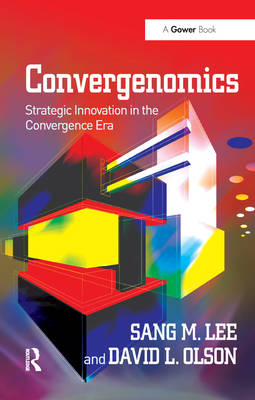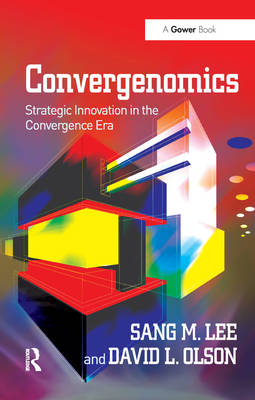
- Afhalen na 1 uur in een winkel met voorraad
- Gratis thuislevering in België vanaf € 30
- Ruim aanbod met 7 miljoen producten
- Afhalen na 1 uur in een winkel met voorraad
- Gratis thuislevering in België vanaf € 30
- Ruim aanbod met 7 miljoen producten
Zoeken
Convergenomics
Strategic Innovation in the Convergence Era
Sang M Lee, David L Olson
Paperback | Engels
€ 67,95
+ 135 punten
Uitvoering
Omschrijving
Convergenomics is about the megatrends that are shaping how people behave and organizations work. In this insightful analysis, Sang Lee and David Olson describe how globalization, digitization, changing demographics, changing industry mix, deregulation and privatization, commoditization of processes, new value chains, emerging new economies, deteriorating environment, and cultural conflicts have led to what they define as a convergence revolution. Lee and Olson discuss this convergence revolution from the perspectives of technology, industry, knowledge, open-source networking and bio-artificial convergence, and they explain how human systems are transformed by what they have named convergenomics. Understanding convergenomics can lead to innovative strategic approaches and, the authors contend, more agile businesses are already employing these approaches to become and remain competitive and to generate greater value in a world radically changed by e-commerce. Business leaders and 'students' of strategy at all levels will learn from this book how revolutionary developments can be embraced rather than feared, and how technology that is potentially frightening in its complexity can be harnessed and used to enable productive collaboration and gain competitive advantage.
Specificaties
Betrokkenen
- Auteur(s):
- Uitgeverij:
Inhoud
- Aantal bladzijden:
- 216
- Taal:
- Engels
Eigenschappen
- Productcode (EAN):
- 9781138378131
- Verschijningsdatum:
- 23/08/2018
- Uitvoering:
- Paperback
- Formaat:
- Trade paperback (VS)
- Afmetingen:
- 137 mm x 213 mm
- Gewicht:
- 158 g

Alleen bij Standaard Boekhandel
+ 135 punten op je klantenkaart van Standaard Boekhandel
Beoordelingen
We publiceren alleen reviews die voldoen aan de voorwaarden voor reviews. Bekijk onze voorwaarden voor reviews.











